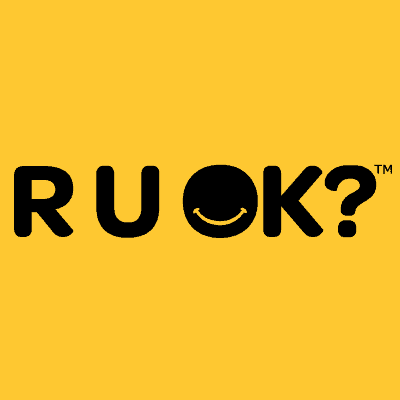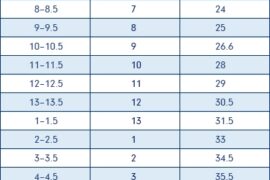A Parents’ Guide to Understanding R U OK? Day
Introduction
Hello wonderful parents! Welcome to your friendly guide about everything you need to know about R U OK? Day. We understand parenting isn’t always an easy ride, and part of this incredible journey includes guiding our little ones as they navigate through life’s various twists and turns. One particular date that needs to be circled on our calendars is R U OK? Day.
What is R U OK? Day?
First, let’s start with the basics! Created in Australia, R U OK? Day is a national day of action that reminds everyone about the importance of checking in with their friends, family members, colleagues, or basically anyone who might be struggling with life’s ups and downs.
Significance of R U OK? Day
There’s a certain magic in asking, “R U OK?” It’s not just about the conversation, it’s about strengthening connections and providing support to those who may be battling inner demons. This is more than just a catchphrase, it’s a movement encouraging everyone to reach out to others and demonstrate genuine compassion.
Why Should Parents Engage in R U OK? Day?
As parents, you play a crucial role in your child’s overall wellbeing. R U OK? Day is not exclusive to adults. Kids and teenagers also experience stress, pressure, and uncertainty.
Creating Safe Spaces for Conversations
Participating in R U OK? Day paves the way for open and safe conversations within your family. It sets a positive precedent, showing your kids that it’s okay to talk about feelings and mental health.
How Can Parents Encourage R U OK? Day?
Ready to embrace R U OK? Day? Fantastic! It’s surprisingly easy to get started and we are here to provide you with top tips on how you can incorporate this very important day into your parenting journey.
Tips for R U OK? Day Conversations
To start, remember that the question at the heart of it all needs to be genuine. Ask “R U OK?” genuinely, listen with an open mind, encourage action, and check in on them regularly.
Join us on this exceptional journey towards creating a supportive and understanding society, starting right at home. Let’s start asking “R U OK?” more frequently because it’s not just relevant to one day, but a practice that should permeate our everyday lives. Happy R U OK? Day to each and every parent out there who is doing an amazing job – remember, you’re doing alright!

A Parents’ Guide to Understanding R U OK? Day
Introduction
Hello beautiful parents! Today we’re diving into an endearing topic – R U OK? Day. Parenthood is a roller-coaster ride filled with highs, lows, and unexpected twists. It also involves supporting our little ones through their emotional development. And that’s where R U OK? Day steps in!
What is R U OK? Day?
To kick things off, here’s a little background! R U OK? Day is an annual initiative originated in Australia. Its primary objective is to encourage everyone to connect with the people around them and lend their ears to those who might be struggling with life’s challenges.
The Magic in the Message
“R U OK?” is not a mere question; it empowers and enables nurturing connections. It reinforces that it’s okay not to be okay and that seeking help and supporting others is a brave step, turning this phrase into a movement for empathy and compassion.
Why R U OK? Day Matters to Parents
As parents, you have a unique role in your child’s mental and emotional development. Your kiddos, like us, also wrestle with worries and stresses.
Encouraging Open Conversations
R U OK? Day fosters an atmosphere conducive to heartfelt talks within your family. It showcases to your children that discussing feelings and mental health is a normal, healthy part of life.
Participating in R U OK? Day: A Parents’ Guide
You’re inspiring and ready to embrace R U OK? Day? That’s fantastic! Embarking on this mission is simpler than you think, and we’ll guide you with top tips.
Conducting the R U OK? Day Talk
A key takeaway is that the “R U OK?” question must be authentic. Deliver it from your heart, listen earnestly, support them in taking positive steps, and make it a point to check-in periodically.
Join in this glorious journey of creating an understanding and caring society with R U OK? Day, starting with our homes. Ask “R U OK?” with sincerity as a part of your daily routine. Here’s a jolly R U OK? Day cheers to all fab parents out there – remember, you’re doing great, no, you’re doing spectacular!
Preparing for R U OK? Day as a Parent
Preparing for R U OK? Day entails more than just marking the day on your calendar. Here are five crucial things every parent should know:
1. Understanding the Purpose
R U OK? Day is an annual event that encourages people to check in with their friends, family, and loved ones and ask a simple question- “R U OK?” It aims to foster open conversations about mental health and to make people feel loved and supported.
2. Teaching Kids to Communicate
This is a great opportunity to teach your kids about open communication. Guide them on how to ask others if they’re okay and most importantly, how to effectively express when they themselves aren’t feeling okay.
3. Developing Empathy
Empathy plays a vital role in the concept of R U OK? Day. As a parent, it’s important to develop a sense of empathy in your children. Make sure they understand the importance of being sensitive to others’ feelings and emotions.
4. Participation Matters
Get involved as a family. Participate in R U OK? Day activities, both in the community and school. This will not only support a great cause but also show your children that you take mental health seriously.
5. Practice What You Preach
Finally, lead by example. Regularly check in with your children and other family members, not just on R U OK? Day, but all year round. Make “R U OK?” a norm in your household’s vocabulary.
In conclusion, R U OK? Day should be seen as a stepping stone towards having more open discussions about mental health, and less about ticking an item off the annual calendar. As a parent, utilize this day to educate your children about the importance of mental health, empathy, and communication.
For more great articles please see here. For more information see here
Disclaimer
The articles available via our website provide general information only and we strongly urge readers to exercise caution and conduct their own thorough research and fact-checking. The information presented should not be taken as absolute truth, and, to the maximum extent permitted by law, we will not be held liable for any inaccuracies or errors in the content. It is essential for individuals to independently verify and validate the information before making any decisions or taking any actions based on the articles.




